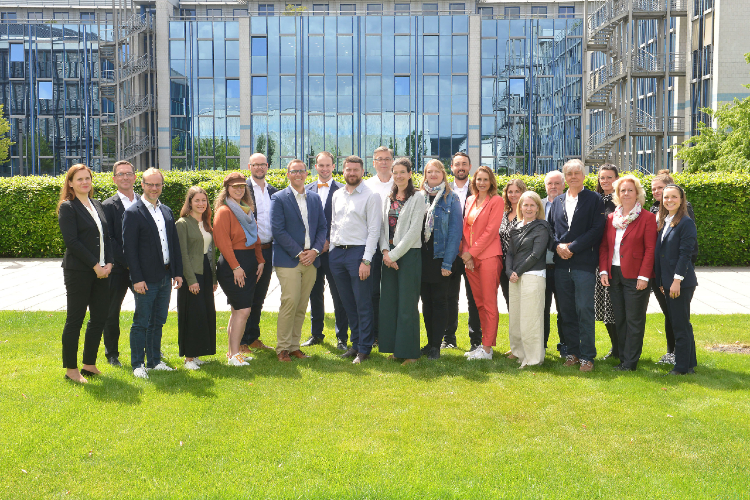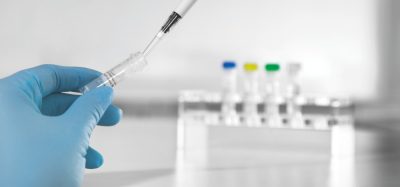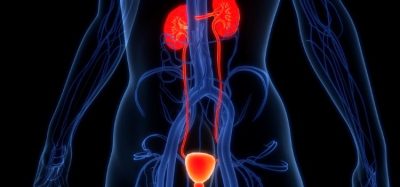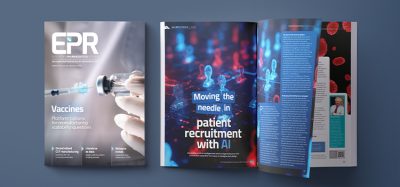European decentralised CAR T manufacturing consortium launched
Posted: 27 August 2025 | Dominic Tyer (European Pharmaceutical Review) | No comments yet
EASYGEN is supported by EU funding andindustry partners that include Fresenius, Charles River, Cellix, Pro-Liance and TQ Therapeutics.


A European project to develop an automated, modular point-of-care manufacturing platform for chimeric antigen receptor T-cell (CAR T) therapy has launched.
EASYGEN aims to increase treatment access by improving hospital workflows and is backed by €8 million in EU funding from the Innovative Health Initiative (IHI).
The consortium (whose representatives are pictured above) brings together a range of academic and research institutions, alongside industry partners that include Charles River and Cellix, with leadership from Fresenius.
Together they hope to reduce manufacturing time to under 24 hours and halve treatment costs through decentralised CAR T manufacturing.
Fresenius’ Chief Medical Officer Ralf Kuhlen said: “EASYGEN brings together physicians, researchers and partner institutions from across Europe with the goal of collaboratively advancing innovative, personalised therapies such as CAR T cells for cancer treatment.
“Automation can help reduce production complexity of these therapies, with the aim of making it easier to scale these life-saving treatments and improve patient access.”
The public-private partnership project’s planned hospital-based modular platform is based on technology originally developed by Frensenius Kabi’s Cell and Gene Therapy team.
The consortium will look to use that technology to develop a modular platform that can manufacture personalised cell therapies in just a few days rather than weeks.
Dr Christian Hauer, President MedTech at Fresenius Kabi, said: “The aim is not only to develop cutting-edge medical technologies, but also to make them available quickly, safely, and close to the patient.”
CAR T therapy access in Europe
Although there have been some striking advances in oncology treatment in the last 20 years, the provision of cancer care is still patchy with a WHO survey of 115 countries showing that 39 percent could only manage to provide a basic level of care, leading to stark differences in patient outcomes.
The inequality between high- and low-income nations is particularly pronounced in CAR T therapy, due to its high costs and complex logistics.
The aim is not only to develop cutting-edge medical technologies, but also to make them available quickly, safely, and close to the patient.”
Breakthrough CAR T treatments involve genetically modifying a patient’s T cells to target cancer, but their complex, time-intensive production requires specialised facilities that are often far from patients.
Those issues can then be compounded by limited manufacturing capacity, with supply chain delays potentially adding a further barrier to timely patient access.
For diffuse large B-cell lymphoma, one of the most common CAR T indications, the average treatment rate in the five largest European countries is below 20 percent, ranging from around 30 percent of eligible patients in France to just 11 percent in Italy.
The EASYGEN CAR T manufacturing consortium
To improve the current situation, the European Commission (EC) is looking to the EASYGEN (EASY workflow integration for GENe therapy) consortium.
In the treatment of complex cancers, time is critical. The current manufacturing process for CAR T therapies is time-intensive and severely limits their clinical application.”
A collaboration between 18 academic, research, industry and clinic partners across eight countries, its industry representatives number Fresenius, Cellix, Charles River, Pro-Liance Global Solutions, TQ Therapeutics and Philips Electronics Nederland.
They will work alongside academic and research institutions such as Fraunhofer IESE, Helmholtz-Zentrum Dresden-Rossendorf, Technical University of Denmark, University of Glasgow, and the European Society for Blood & Marrow Transplantation.
On the industry side, Charles River’s 3D screening technologies will be harnessed to develop an ex vivo platform that can expedite early safety and efficacy screening of CAR T cell candidates for subsequent development.
Julia Schueler, Therapeutic Area Lead for Oncology at Charles River, said: “In the treatment of complex cancers, time is critical. The current manufacturing process for CAR T therapies is time-intensive and severely limits their clinical application. By collaborating across industry and academia, I am hopeful we can design a streamlined workflow that will increase access to these therapies for patients who need them.”
Meanwhile, for quality control testing the collaboration will use Cellix’s Inish Analyser, which measures cell viability and cell numbers to monitor safety and correct dosing of the T cells for infusion into the patient.
Together, the consortium partners are tasked with developing a ‘one-stop’ manufacturing solution that can be integrated into hospital workflows to provide CAR-T treatment in any standard hospital setting capable of conducting leukapheresis.
The modular approach that EASYGEN’s partners are pursuing should also allow it to be adapted for different advanced therapy medicinal products (ATMPs), including solid tumours.
In this way the EC envisions “a paradigm shift in the CAR T market, paving the way to a greater democratised cancer treatment access and improving the patient’s quality of life and overall outcome”.
About the author
Dominic Tyer is the Editor of European Pharmaceutical Review. You can connect with him at LinkedIn or follow him on Bluesky.
Related topics
Anti-Cancer Therapeutics, Cell and Gene Therapy, Drug Manufacturing, Personalised medicine
Related organisations
Cellix, Charles River, European Commission, European Society for Blood and Marrow Transplantation, Fraunhofer IESE, Fresenius, Helmholtz-Zentrum Dresden-Rossendorf, Innovative Health Initiative (IHI), Philips Electronics Nederland, Pro-Liance Global Solutions, Technical University of Denmark, TQ Therapeutics, University of Glasgow









